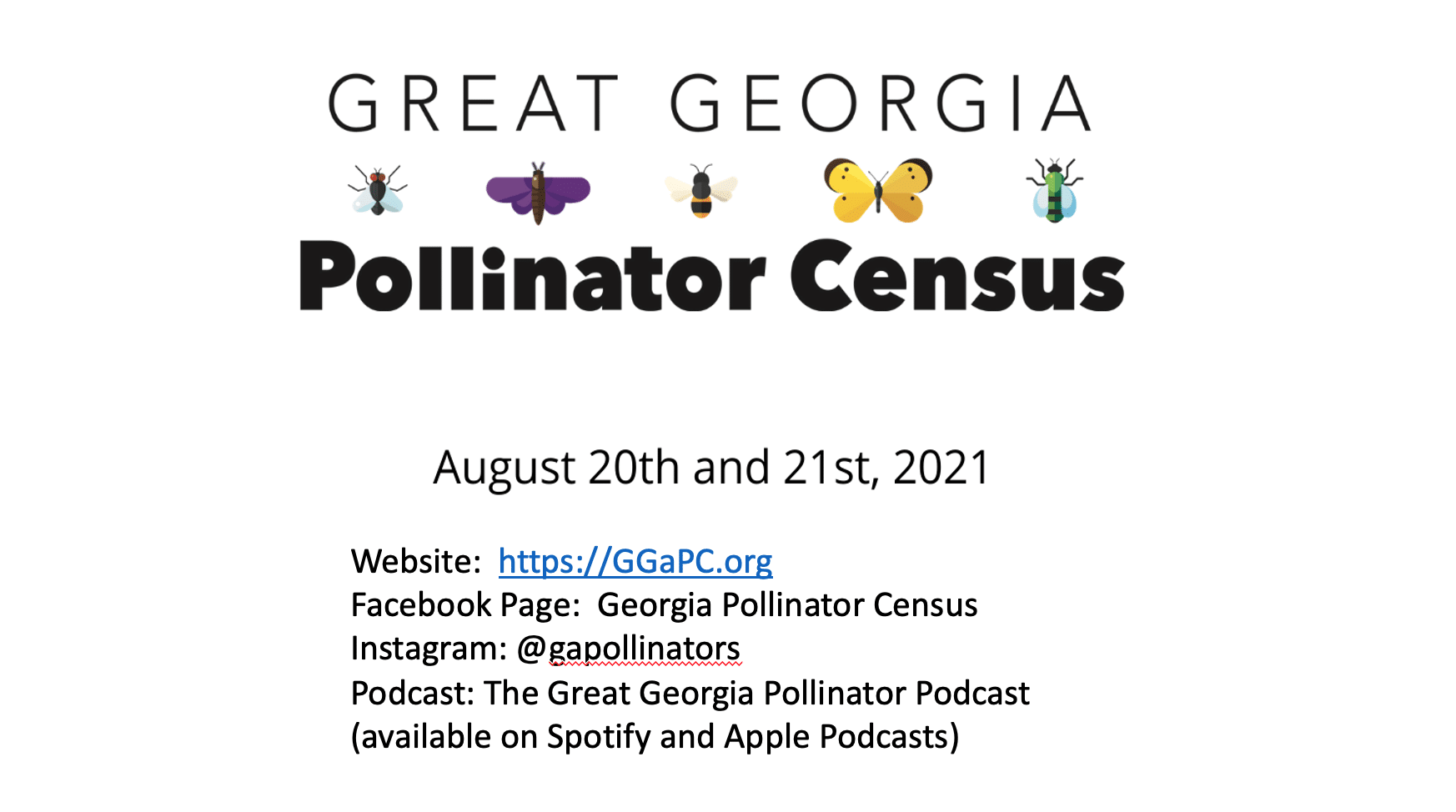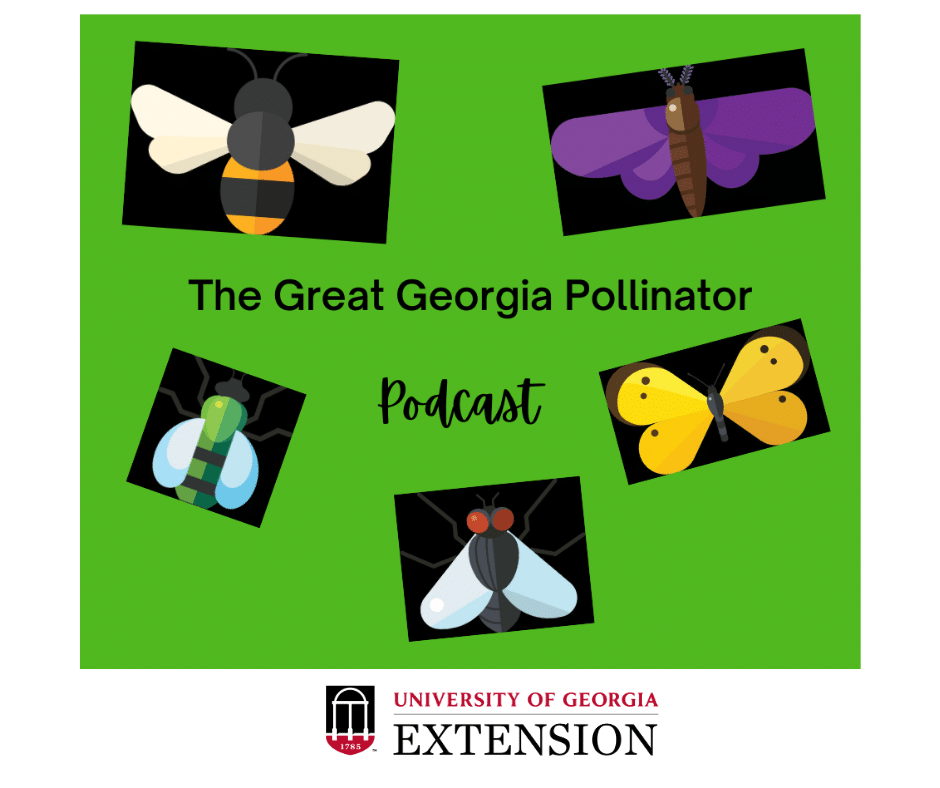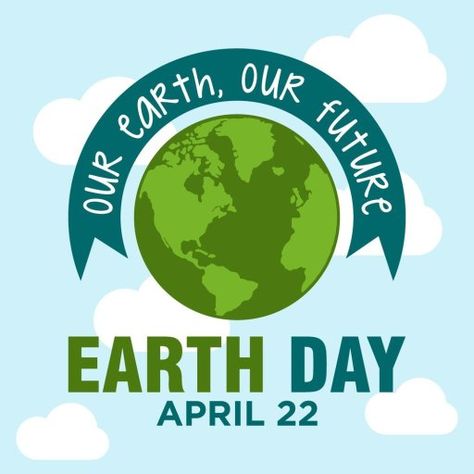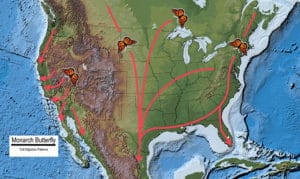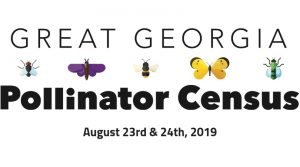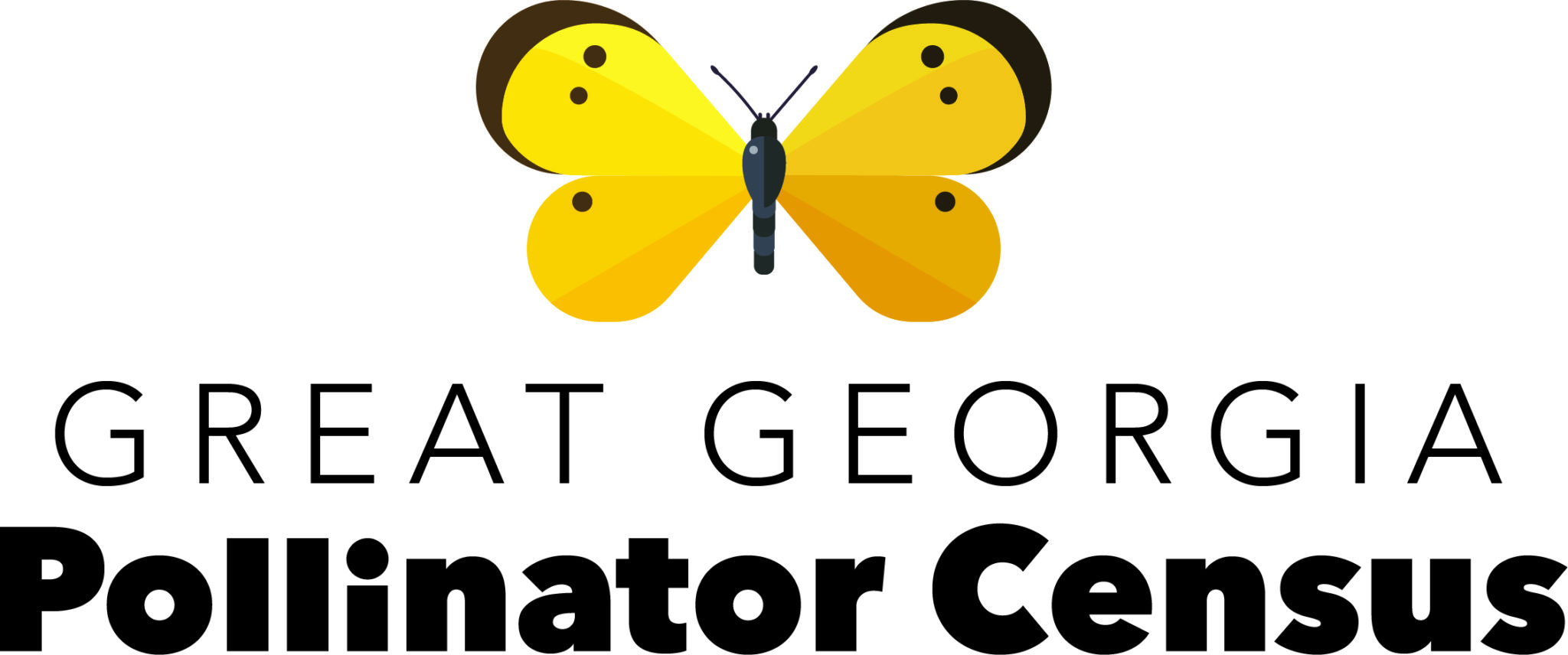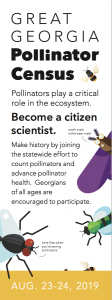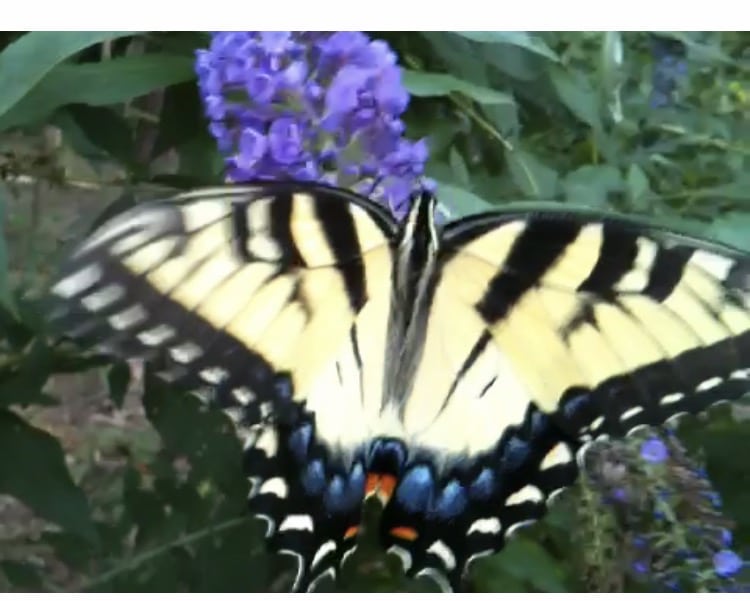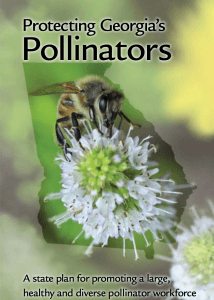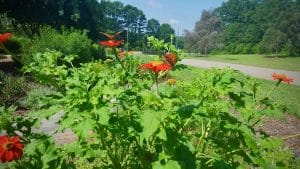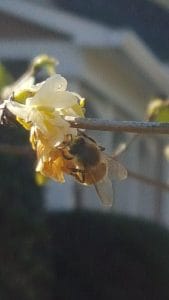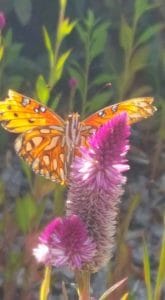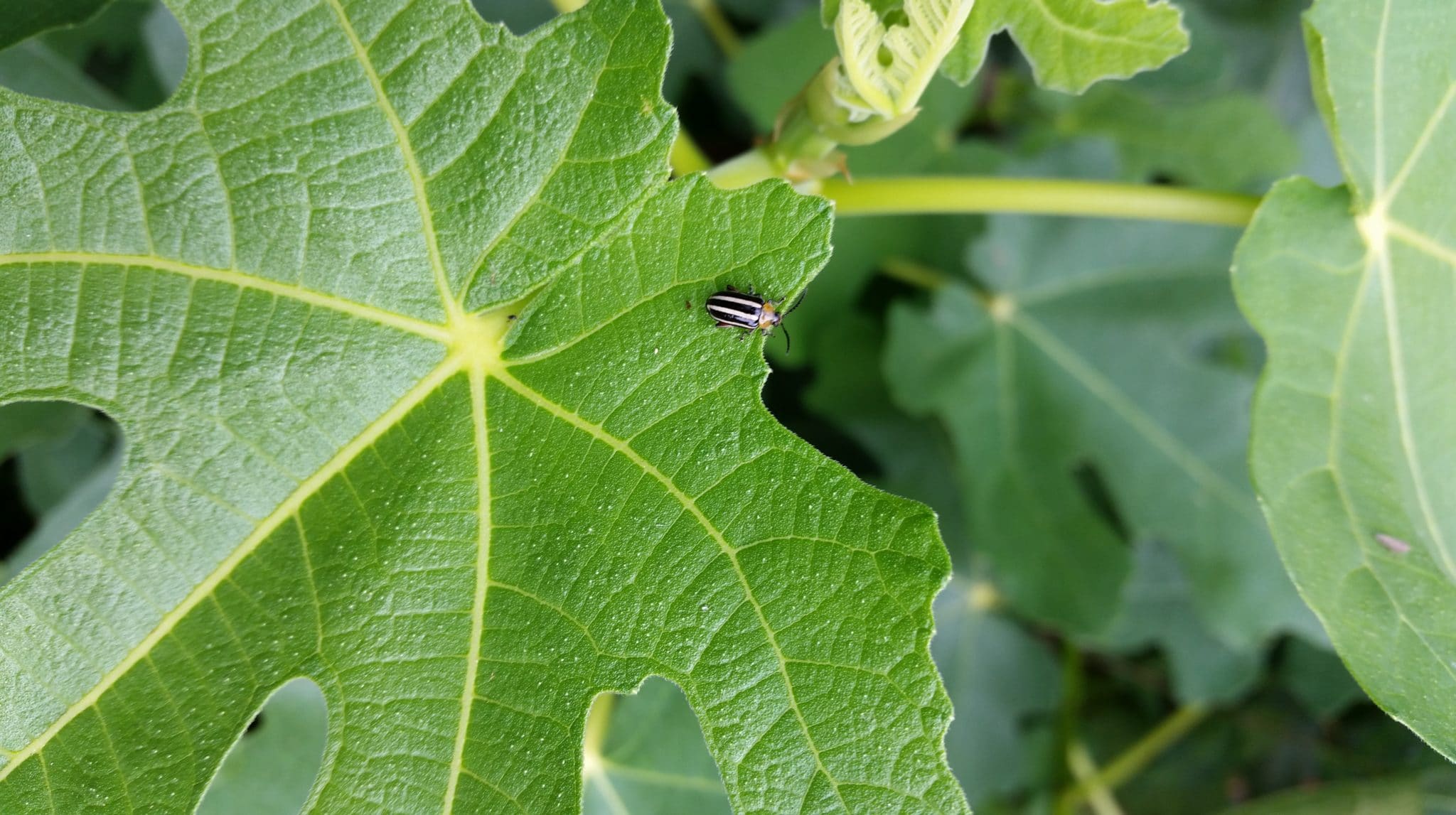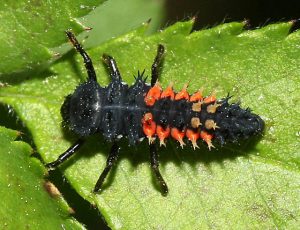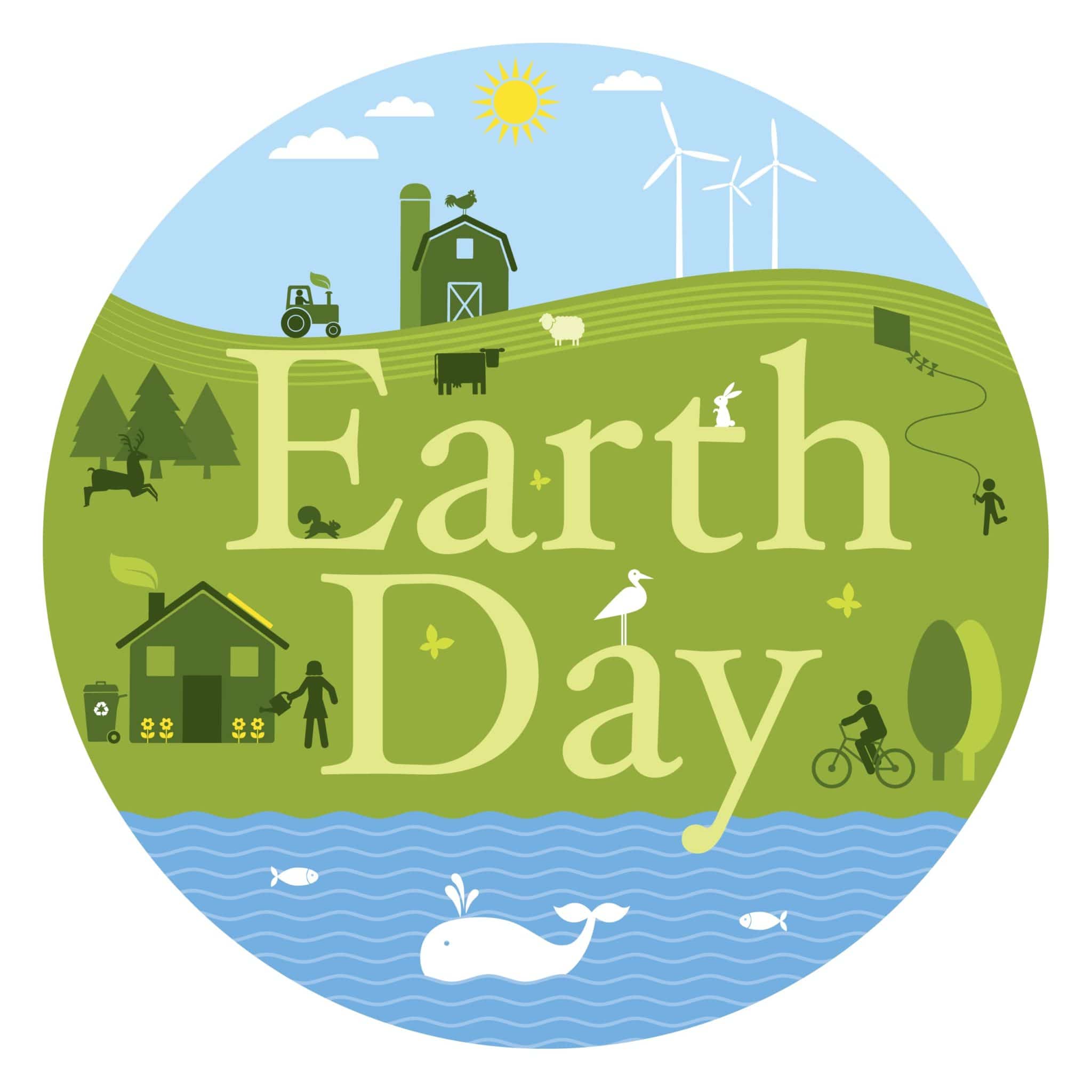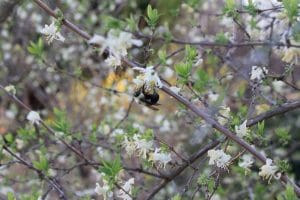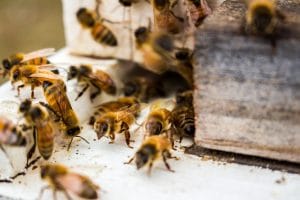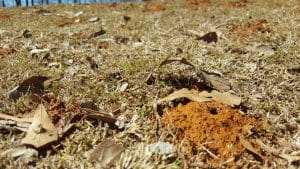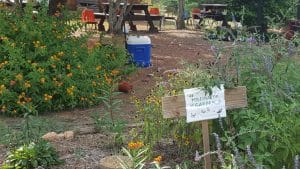The 3rd Annual Great Georgia Pollinator Census will be Friday, August 20th and Saturday, August 21st, 2021. This event brings citizens scientists from across Georgia together for insect education and conservation. Are those dates on your calendar? Won’t you join us?
Why Count Insects?
Understanding pollinators and other beneficial insects is imperative to Georgia’s ecosystem and our economics. A 2014 economic impact study by the University of Georgia determined that the annual value of pollination to our state is over $360 million. Any home gardener who has tried to grow watermelon, squash or cucumbers knows that if there are no pollinators there are no watermelons, squash or cucumbers.
Learning what pollinators need, their habitat, is an important part of this project. By providing a varied flower garden with nesting materials such as undisturbed ground, spent flower stems and leaf litter not only provides for pollinators but other beneficial insects as well. These beneficials can help a home garden with some of the pest insect problems.
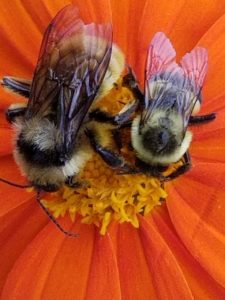
How Can You Participate?
- Learn about creating a sustainable pollinator habitat by being a part of your local UGA Extension office programming.
- Create a small pollinator garden or build the pollinator garden of your dreams (the bees will thank you!). We have the resources to help.
- Join our Georgia Pollinator Census Facebook group to share ideas and to learn insect identification.
- Check the project website, https://GGaPC.org, for information on exactly how to count insects for the Census.
- Plan to attend one of the events listed on the website to learn even more about pollinators.
- Count insects on August 2oth and/or 21st.
- Upload your counts to the website.
- Know that you have made a real difference in pollinator conservation.
How is the Census Data Used?
The data collected from the Census will be used by researchers to spot pollinator population trends, economic valuations, and correlations between pollinator populations and other factors such as weather. By participating in the Census you are truly contributing to science!
I look forward to seeing YOUR pollinator counts this August,
Becky Griffin
Coordinator of the Great Georgia Pollinator Census
